 September 10 2025
September 10 2025
Do you wonder why more and more Swedish players move towards online casinos that are not licensed in Sweden? In this comprehensive guide, we will delve into the world of casinos without a Swedish license and shed light on why they have become so popular.
From a broader range of games to more lucrative bonuses and quicker payouts with updated banking options, you'll discover how these international casinos vary from the Swedish-licensed platforms. Furthemore, insights from industry expert Anders Larsson are added to help provide insight into the growth of this sector. Find CUSL's +248 casino reviews here, for some extra, reliable, and trustworthy reviews on casinos without a Swedish License.
We will also talk about the critical international licenses (MGA, Curacao), the ways to pay and how to choose a good resource. In this guide, we will emphasise responsible gaming practices, legal considerations for players in Sweden, and the unique advantages these casinos provide for both poker enthusiasts and casino players alike. Insights from industry expert Anders Larsson are added to help provide insight into the growth of this sector.
A casino without a Swedish license is any online gambling platform that does not hold a permit from Spelinspektionen, the Swedish Gambling Authority. In 2019, Sweden implemented a licensing regime that mandates operators to secure a local license if they want to provide gambling services to Swedish citizens.
Casinos which have not applied to obtain a Swedish licence, but have chosen to operate under other jurisdictions, are considered from a Swedish perspective to be foreign or international casinos. These sites are often licensed elsewhere, such as Malta or Curacao, and they are still legally able to accept players from Sweden.
The main difference from a player's point of view is regulation. While a Swedish-licensed casino must comply with the stringent gambling laws and player protection measures in place in Sweden, a non-Swedish-licensed casino will be governed by the laws of its own licensing jurisdiction.
Even though the Swedish name for these casinos is unlicensed (utan licens), they are typically licensed in other places - they are not rogue or illegal casinos, they are just not regulated by the Swedish authorities. For example, a casino may be licensed by the Malta Gaming Authority (MGA) or by Curacao eGaming. This means that it is overseen by those organizations instead of Spelinspektionen.
It's worth mentioning that playing at these international casinos is legal for Swedish players. Swedish law currently does not penalise people for betting on international sites. The operator bears the burden of proof that he or she is not marketing or targeting without a license. So, if you're a player, you won't get into trouble just for enjoying games on a casino website based in another country.
As a result, a lot of the Swedes do play on these sites. In fact, the market of casinos without a Swedish license (or "utan svensk licens") has expanded to include hundreds of online casinos. However, since these sites are not part of the Swedish system, they will not have the same government oversight and protections as a Swedish license. This makes it crucial to select reputable casinos and be aware of the differences in regulations and protections when playing abroad.
Why do more Swedes use foreign casinos? In short, these sites offer a distinct experience that many find desirable. Several factors are at play:
Sweden's strict regulations mean that licensed casinos are restricted in terms of bonuses, game features, and even how they are required to implement responsible gambling. This well-meaning tightness can cause the gambling experience to feel stifled. International casinos, on the other hand, promise players things like continuous bonuses, VIP programs, and no forced breaks between spins. For a player who enjoys those extras, the foreign sites offer more thrill and value.
Some Swedish players travel offshore in search of games that are not readily available in their home country. This means that whether it is a specific slot title that is not available in Sweden, jackpot games with larger payouts, or newer game formats, international casinos tend to have a wider selection (as we will discuss later in this guide). This increased number of games and variety of games attracts players who may have felt that the local area didn't have much to offer.
Swedish sites are required by law to have features like deposit limits and self-exclusion (through the national Spelpaus system). While these are essential safety reasons, not all players wish to have these restrictions enabled by default. For instance, the government has in 2020 temporarily introduced an upper limit of 5,000 SEK per week for deposits in online casinos - a regulation that frustrated many high rollers, but also casual players.
For instance, a player who has self-excluded using Spelpaus but subsequently wants to play cannot do so again on Swedish sites before the exclusion expires. Some such players play on foreign sites where Spelpaus is not in force. Some people don't want to have to establish deposit limits or be reminded about the time spent. They want to control their play and international casinos allow them to do that.
One of the advantages of international sites is the relative privacy and anonymity they provide. Swedish-licensed platforms verify your identity using BankID and connect to your personal identification number. Usually, you will sign up with basic information on a foreign site and you may not need to verify your ID until you want to withdraw. Some players find this less intrusive process to be comfortable. They like to play without feeling that they are under scrutiny from authority or having their activity tied to their BankID record.
Additionally, some Swedish gamblers (rightly or wrongly) believe that they have a better chance of winning on unlicensed sites. This may be because there are higher theoretical RTPs on certain games or simply because there are high-value promotions in play. While the actual odds of the games are still determined by mathematics, the sense of "I could win more here" persuades enough players to take their chance outside the market regulated by the Swedish authorities.
In other words, the reason why Swedish players are increasingly choosing these casinos lies in the fact that they can provide what the domestic market does not: more bonuses, more games and a gambling experience with fewer obstacles. Of course, each player will need to consider these benefits against the trade-offs (such as fewer regulations from Swedish authorities). Still, the increasing popularity of casinos utan svensk licens indicates that many players find the trade-off worth it.
Online slots in casinos without a Swedish license tend to have a larger game library and more options for players to gamble on. This larger selection is a significant reason why players choose international sites.
These platforms usually have thousands of slot machines across all themes and styles. Because they can tap into a global talent pool of game developers, these casinos offer all the popular titles as well as many new and niche games that may not be found on Swedish sites. While abroad, you will get a complete selection.
In Sweden, some games have been restricted or removed because they were considered particularly dangerous or too fast-paced. You can play high-progressive jackpot slots, classic fruit slots, video slots with advanced features, and more. There are generally no artificial restrictions, such as a slow spin speed, so functions like turbo spins or auto-play (if desired) are available.
In addition, the live casino options are diverse. International sites work with leading live dealer providers, allowing you to sit down at any time at live blackjack, roulette, baccarat, or poker tables. Each game may have many variants from the original to creative reimaginations (see, for instance, game-show style live games with bonus rounds). Finally, since these casinos cater to players from many different countries, they often offer live tables in multiple languages and with varying betting limits to suit players of all skill levels, from casual players to high rollers.
In addition to the typical casino offerings, you may also find alternative forms of gambling under the same virtual roof. Many foreign casinos have a sports betting section, poker rooms, bingo halls, or scratch cards next to their slots. Not all Swedish-licensed operators offer these additional options, or if they do, they may be limited in scope.
At an international casino, a Swedish gambler can make a bet on a football match, then switch to playing slots or participate in a poker tournament - all on the same website. The convenience of having a one-stop shop, along with the sheer number of games available, means you are always guaranteed to find something different.
Importantly, these sites can be accessed on modern devices just like the Swedish casinos.
Most international casinos have mobile-friendly websites or apps, allowing players to access the game on their mobile phones or tablets with ease. In summary, the game variety and versatility at casinos utan svensk licens are truly vast.
While the local sites might offer a somewhat limited selection or features, Swedish players have the opportunity to explore a vast playground of gambling entertainment beyond their borders. Just remember, the more choices you have, the more critical it is to manage your time and bankroll so that you don't get carried away trying everything at once!

One of the main advantages of foreign casinos is the ability to provide generous bonuses and ongoing promotions. Swedish regulations are very restrictive when it comes to bonuses. Usually, you only get a welcome bonus once at a licensed site (and even that has been capped to a very low amount during some periods). By contrast, casinos that don't have a Swedish license are not restricted by any such limits and can offer all kinds of incentives to players.
At an international online casino, you can enjoy a big welcome package for a start, for example, a 100% or 200% match on a deposit plus free spins. From there, the benefits continue. These sites often offer weekly or monthly promotions, such as reload bonuses that provide bonus funds on subsequent deposits, free spins on new games, or slot tournaments where you can compete for prizes.
Some even offer no-deposit bonuses - small freebies that you get simply for signing up - so you can try out the casino without risking your own money. Loyalty programs and VIP programs are also huge attractions. As you play, you can earn points or level up in the VIP program, unlocking features such as cashback on losses, special promotions, birthday bonuses, and personalised service for high rollers. In the Swedish licensed system, none of these advantages are present because of the blanket ban on repeated bonuses.
This means that the promotional environment on these sites is much more interesting and rewarding for players. Whether you're looking for extra cash to play table games or free spins for slots, there are numerous offers available that cater to your preferences. Just remember that bonuses have terms attached to them: always review the wagering requirements (how many times you must play the bonus through) and any other conditions.
The reliable casinos explain these terms clearly. The best part here is that you can take advantage of multiple bonuses if you choose to, rather than being limited to one offer. For many Swedish players, this sense of freedom greatly increases the entertainment value of gameplay, as it provides them with more value for their money and greater opportunities to experiment with different games using their bonus funds.
Another benefit of online casinos is that they offer a range of payment options and often faster withdrawal times. Swedish-licensed casinos usually use BankID and one or two local payment methods. By contrast, casinos that are not licensed by the Swedish authorities accept a wide variety of banking methods.
Deposits can often be made via credit/debit cards (Visa, MasterCard), e-wallets such as Skrill or Neteller, prepaid vouchers and even cryptocurrencies such as Bitcoin. Many sites also accept immediate bank transfers via other services (because BankID services like Swish or Trustly are not available outside the Swedish system). These options still let you make direct deposits from your bank account, but without the BankID step. Most international casinos allow you to deposit and play with Swedish Kronor (SEK) as a currency, but if they don't, your money may be converted to euros or dollars. Therefore, it is worth checking if they accept SEK to avoid conversion costs.
When it comes to withdrawals, reputable international casinos make it a priority to pay out promptly. Crypto and e-wallet withdrawals are the fastest, sometimes processed in hours. Card and bank transfer cash-outs can take up to a couple of business days, which is pretty typical. Remember, you may be asked to provide your identity when you first withdraw, by sending documents to the casino - this is a standard security measure everywhere. Once confirmed, you should experience smooth and prompt payouts.
The trick is to stick to established payment methods and reputable casinos. Reliable sites will encrypt your transactions and make sure they are secure. While the processes vary a bit from what you might have on a Swedish site, the overall experience - creating a deposit, seeing funds appear, and withdrawing winnings back to your account - should be user-friendly and efficient on these international platforms.
Since these casinos are not licensed in Sweden, it is essential to understand what type of license they do have - this is the foundation for their reliability and safety. Not all licenses are the same; some jurisdictions are more stringent and regulate this more closely than others. The most common permits you will find and what they mean for you as a Swedish player are as follows:
Malta is a member of the European Union and home to one of the most reputable regulatory authorities in the industry. An MGA license is considered by many to be the ultimate license for online casinos worldwide. If a casino is MGA-licensed and does not have a Swedish license, it also means that the casino is trustworthy.
The MGA enforces stringent regulations on casinos, ensuring that they adhere to player protection measures, fair gaming practices, and financial transparency. One of the most significant advantages for players is that any winnings from a casino approved by the MGA are tax-free in Sweden.
This is because, according to EU law, Sweden does not impose a tax on gambling winnings from other EU or EEA countries. In practice, most of the safest and most reputable online casinos outside of Sweden are licensed by the MGA. Another advantage of MGA regulation is that if you ever have a serious dispute with a casino, the MGA has an official complaints process that you can follow.
Curacao is a small Caribbean island that has been a popular choice for online casinos to obtain their license. The reason many new or smaller casino brands get a Curacao license is that it is affordable and relatively quick to obtain. Overall, a Curacao license is a bit of a mixed blessing for players. On one hand, this means the casino is at least legal in one place and not completely rogue.
On the other hand, enforcement of regulations in Curacao was traditionally extremely lenient. They don't arbitrate disputes between players and casinos in the same way that MGA and UK regulators do. So if you opt for a Curacao-licensed casino, it's even more critical to ensure that the operator has a good reputation. It's worth noting that Curacao has been working on reforms to enhance its gambling regulatory framework, which could lead to better protections for players in the future.
It's essential to keep in mind that winnings from Curacao sites are not automatically exempt from taxation for Swedish players. Since Curacao is outside the EU/EEA, if you get a big win, it should, in theory, be declared and be subject to tax (30% in Sweden).
You may also come across casinos that are licensed by other regions such as Gibraltar, Estonia, the Isle of Man or even newer jurisdictions such as Anjouan or Kahnawake. Generally, EU licences (e.g., Estonia or Gibraltar) offer an equivalent level of player protection and tax-free winnings as the MGA. Licenses issued by very small jurisdictions or very obscure jurisdictions may be less reliable for oversight.
The UK Gambling Commission (UKGC) is another high-level license. Still, UK-licensed casinos mainly target UK customers and an extra Swedish permit is often required to be able to target Sweden legally. The most important thing for any player is to make sure that the casino is licensed in a reputable jurisdiction. If there is no license listed at all, then it's a red flag and it's better to stay away from any casino that isn't clearly operating under a known regulator.
With numerous providers to choose from, it's crucial to select a reputable site. Here are some tips to help you make sure you are playing at a reputable casino:
Taking the time to check a casino on these points will help you to stay away from the bad apples. The good news is that many of the casinos that do not have a license from Sweden are run by established companies and they care about their players. A little bit of due diligence goes a long way in ensuring that your gambling experience remains fun and stress-free.
If you leave the Swedish regulated system, the level of protection offered by Swedish legislation (such as Spelpaus and mandatory limits) will not automatically apply. This is why we believe that it's essential to practice self-regulation and stay mindful of your gambling habits when playing on international sites.
If you have been blocked from a casino due to gambling problems because you have used Spelpaus (the national self-exclusion programme) in the past, keep in mind that casinos without a Swedish licence will not automatically block you. If you are an at-risk gambler, it can be dangerous to return to these sites. Always be honest with yourself as to why you're choosing to play overseas. If you can't get around a self-exclusion, you might need to get help instead of finding a way around it.
On a positive note, many online casinos from other countries do have their own responsible gambling tools. You can typically set limits on your account, such as deposit limits, loss limits or cooling-off periods - but you need to turn them on yourself. Use the following features if necessary. Also, be sure to enforce personal rules: for example, decide before you start how much money you can afford to lose, and take frequent breaks during play (no site will compel you to take a break). Some players even use special blocking software or applications to restrict their access to gambling sites, as an extra precaution.
Remember that help is still available. Even if you aren't visiting a site licensed in Sweden, you can still reach out to Swedish support services such as Stodlinjen (the national helpline) if you feel that your gambling is becoming uncontrollable. It is up to you to take advantage of the tools and support offered. By being mindful of your behaviour and boundaries, you can embrace the enhanced freedom of online casinos abroad without succumbing to unhealthy habits. Gambling should always be a form of entertainment, and even in a more lenient setting, it is up to the individual player to keep it fun and in check.
The first question many players have is whether or not it is legal to play in a casino without a Swedish license. As mentioned briefly above, the answer is yes - it is legal for a resident of Sweden to play slots on international casino sites. Swedish authorities are concerned with regulating the operators, not punishing the individual players. So there won't be any legal issues for using these websites and betting our money.
That said, there are two points to remember. First, the government makes some attempts to deter unlicensed gambling, such as payment blocking. Sometimes a deposit by Swedish bank or credit card can be rejected because the bank has blocked transactions to a particular casino. In such cases, players tend to use other ways (e-wallet, cryptocurrency, etc.) to bypass the ban. These obstacles are pretty unusual, but may occur as part of Sweden's efforts to restrict unlicensed operators.
Another point is taxation. Swedish players are exempt from tax on winnings from casinos licensed in the EU/EEA (e.g., Malta). However, if a licensed non-EU casino wins you money, then these winnings are taxed according to Swedish legislation. In theory, you'd have to declare them and pay a 30% tax on the profit. In reality, many casual gamblers would not worry about small sums. Still, if you hit a big jackpot on a Curacao-licensed platform, be aware of the tax obligation to avoid any unpleasant surprises.
Finally, keep in mind that if anything goes wrong on a foreign website - for example, the casino will not pay you your winnings - you cannot turn to the Swedish Gambling Authority for assistance. You would have to work it out with the casino's own regulator or through their support channels. This is why it's essential to stick to reputable licensed sites; this will help you reduce the chances of serious disputes. Additionally, the same rules apply: you must be at least 18 years old to gamble, even on foreign sites, just as in Sweden.
In summary, playing in casinos without a Swedish license is legal for you as an individual. Just use common sense: stick to reputable sites, be careful with taxes on large winnings, and play within safe limits. With those precautions in mind, you can play these international casinos without legal concerns.
Not every gambler is the same. Some are poker pros, while others are fans of slot and casino games. Casinos without a Swedish license offer both groups solutions that Swedish-licensed sites cannot consistently deliver.
International sites can be very appealing to online poker enthusiasts. You're playing against people from all over, so you often have larger player pools and more tournaments as a result. This means more games available at all times and generally larger prize pools for the bigger events. You can join tournaments with thousands of players from all over the world or find cash games at any stake level.
Also, unlike Sweden, where the maximum ongoing reward is capped, foreign poker rooms can offer rakeback deals or ongoing bonuses. Rakeback (a percentage of the fee you paid getting back to you) or loyalty rewards can put more money in a grinder's pocket, which can be a massive advantage if you play a lot.
Many international poker sites also host special promotions such as freeroll tournaments (free entry contests) for their community, providing players with more opportunities to win. In brief, these offshore platforms offer poker players access to more action and potentially better rewards while competing against a wider global community of players.
If you're more into slots, roulette, blackjack, and other games, then the advantages are primarily the ones we've discussed throughout this guide: an enormous variety of games and ongoing promotions. Players on foreign platforms have access to the latest slot releases, live dealer technology, and versatile betting limits. You can spin without time limits and enjoy exciting challenges such as slot tournaments or loyalty point competitions.
While casual players may find the low-stakes games and free spin promotions common in offshore casinos entertaining, requiring only small deposits or low stakes, high rollers may prefer the larger deposit and betting limits, as well as the VIP perks, available in land-based casinos. So, whatever your preferences are when it comes to casino experiences - whether you prefer high stakes or penny bets, traditional classics or innovative creations - you'll likely find something that suits you perfectly on the global platforms, with bonuses to enhance your gameplay.
The environment is a boon for both poker players and casino patrons. You can more easily customise the experience to your taste. As always, the key is to approach these benefits responsibly, ensuring that the added freedom and features work to elevate your enjoyment without encouraging reckless betting beyond your means. Additionally, stay informed about industry news to remain up-to-date on the latest developments.
The popularity of unlicensed online casinos in Sweden has increased significantly in recent years. What began as a niche for a select few interested players has since grown into a substantial portion of the Swedish gambling market. Industry estimates suggest that more than a tenth (and possibly as much as a quarter) of Swedish online casino gaming now takes place on these international sites, despite government channelisation efforts. Anders Larsson, iGaming specialist and researcher of this trend, points out that: "the number of foreign casino sites that tailor their services to the Swedish market is growing as the demand for it increases."
One of the causes for the growth is player awareness. Through online forums and guides (such as CUSL), Swedish gamblers have been able to learn about the benefits of these foreign casinos and how to find safe ones. As knowledge spreads, an increasing number of people have tried offshore sites. Anders Larsson has noted that Swedish players are now a sought-after audience for many operators abroad, which was not the case ten years ago. As a result, more and more foreign casinos have introduced Swedish language versions, accept SEK currency, and promote their bonuses and games specifically to the Swedish audience.
Another reason is the technological advancement. From innovative live dealer games to mobile compatibility and support for cryptocurrencies, these international casinos have been quick to adapt to new features. This innovation ensures that the products are fresh and attractive. According to Anders, "the Swedish-regulated market is sometimes lacking in terms of both variety and technological advances, further fueling the desire of savvy players to seek out alternatives."
As we advance, experts such as Anders Larsson believe that without regulatory changes that make it easier to play in casinos that operate without a Swedish license, the trend will only continue. This has been recognised by the Swedish Gambling Authority, which has noted that a significant number of players continue to prefer offshore sites despite being encouraged to use the licensed system. This means that the globalised online casino market is here to stay, and Swedish players will continue to benefit from it.
In conclusion, the industry's growth is an interplay between player preferences and regulatory limitations. Swedish players have demonstrated that they are willing to chase the best gaming experience available, and international casinos are more than ready to offer that experience. Anders Larsson's insight underscores the fact that this segment of the industry is now well-established and will likely continue to grow as long as there remains value and excitement beyond Sweden's borders.
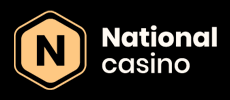

Curacao-License
 There is a No Deposit Bonus available: 25 Free Spins
There is a No Deposit Bonus available: 25 Free Spins


Curacao-License
 There is a No Deposit Bonus available:
25 Free Spins
There is a No Deposit Bonus available:
25 Free Spins


Curacao-License



Curacao-License
 There is a No Deposit Bonus available: 30 Free Spins
There is a No Deposit Bonus available: 30 Free Spins


Curacao-License
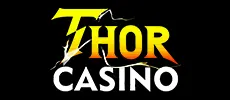

Curacao-License
 There is a No Deposit Bonus available: 20 Free Spins (No Wager)
There is a No Deposit Bonus available: 20 Free Spins (No Wager)
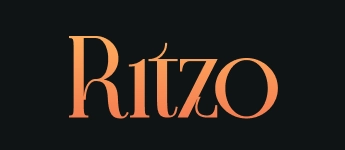

Curacao-License


Curacao-License


Curacao-License
 There is a No Deposit Bonus available: $7 Free Cash
There is a No Deposit Bonus available: $7 Free Cash


Curacao-License


Curacao-License
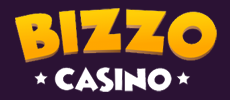

Curacao-License
 There is a No Deposit Bonus available: 25 Free Spins
There is a No Deposit Bonus available: 25 Free Spins


Curacao-License
 There is a No Deposit Bonus available: 30 Free Spins
There is a No Deposit Bonus available: 30 Free Spins


Curacao-License
 There is a No Deposit Bonus available: 30 Free Spins
There is a No Deposit Bonus available: 30 Free Spins
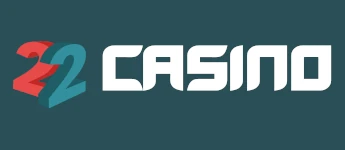

Curacao-License